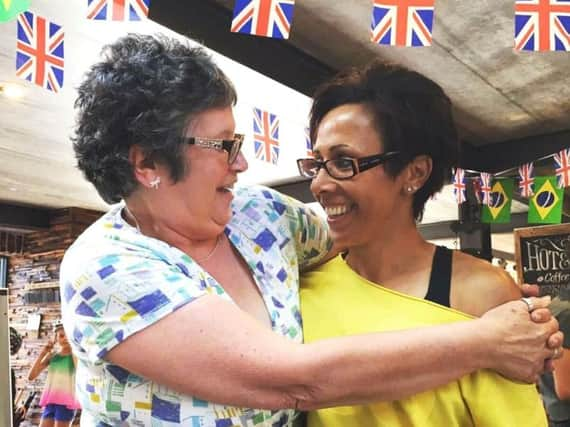Would you know if you had leukemia?


Bloodwise said it found just 1 per cent of people questioned said they were “very confident” they could identify common symptoms, even though it is the third biggest cause of cancer deaths.
One in 19 people will be diagnosed with blood cancers, which include leukaemia, lymphoma, and myeloma, and they kill more people every year than either breast or prostate cancer.
Advertisement
Hide AdAdvertisement
Hide AdJust under a third of survey respondents knew that fatigue was a common symptom, while one in 10 correctly identified bruising (11 per cent) and weight loss as signs.
Recall of other common symptoms of blood cancer was even lower, with only one in 20 (5 per cent) respondents identifying aches and pains, 2 per cent citing repeated infections/a weak immune system, 2 per cent identifying lumps and just 1 per cent listing night sweats/sweating.
When people were asked to spontaneously list what they thought were common signs, more than half (52 per cent) of those questioned said they did not know any.
The YouGov poll of more than 2,000 British adults was commissioned by Bloodwise, which said the findings highlight an urgent need to raise public awareness of blood cancers.
Advertisement
Hide AdAdvertisement
Hide AdSarah Porch, head of information and support services, said: “Symptoms such as fatigue, weight loss and night sweats can sometimes be dismissed or downplayed.
“It’s very worrying that public awareness that these could be signs of blood cancer continues to be so low. Getting diagnosed early can improve the success of treatment for a number of types of blood cancer. If symptoms cannot be explained and are persistent, people should make an appointment with their GP. While it is unlikely to be anything serious, it is important to get it checked out.”
Bloodwise is a charity partner in the nationwide Make Blood Cancer Visible campaign, fronted by Dame Kelly Holmes who lost her mother Pam to blood cancer last year.
Olympic athlete Dame Kelly Holmes has described the “heartbreaking” experience of losing her mother to blood cancer as she campaigns to raise awareness of the disease.
Advertisement
Hide AdAdvertisement
Hide AdThe double gold medal winner spoke out as it emerged that more than half of British adults could not name any symptoms of the condition, despite it being one of the most commonly diagnosed cancers in the UK.
One in 19 people will be diagnosed with blood cancer, according to the charity Bloodwise, while it is the third biggest cause of cancer deaths, killing more people every year than either breast or prostate cancer.
A number of short films featuring Dame Kelly and other people whose lives have been affected by blood cancer can be seen on the website www.makebloodcancervisible.co.uk.
"We didn’t really know what it was or understand what it was."
Advertisement
Hide AdAdvertisement
Hide AdDame Kelly described how her whole family was shocked when her mother, who she called Mother Dear, was diagnosed with myeloma at the end of 2014.
She had been suffering bad colds and pneumonia during recent winters, along with back pain but, “Me being a sportswoman, I was like: ‘yeah, have a massage. You’ll be fine,” Dame Kelly said.
An X-ray at Tunbridge Wells Hospital in Kent, where she had worked for many years as a nursing assistant, showed she had broken ribs, which Dame Kelly described as “weird” as her back pain had been put down to her dog pulling on its lead.
Subsequent blood tests showed up abnormalities, before a bone marrow biopsy showed she had myeloma.
Advertisement
Hide AdAdvertisement
Hide AdHer mother underwent chemotherapy and had a stem cell transplant, which initially made her feel much better, but she died suddenly while in hospital on August 7 last year, aged 64.
“When she was diagnosed it was a big shock, because, one, I think no one had heard of myeloma.
“We didn’t really know what it was or understand what it was. And secondly, to say ‘you’ve got cancer’, isn’t a thing you want to hear with anyone,” Dame Kelly said.